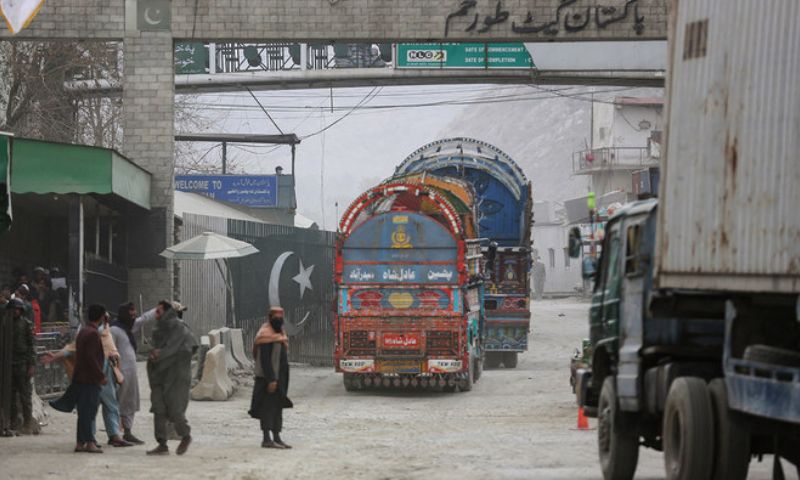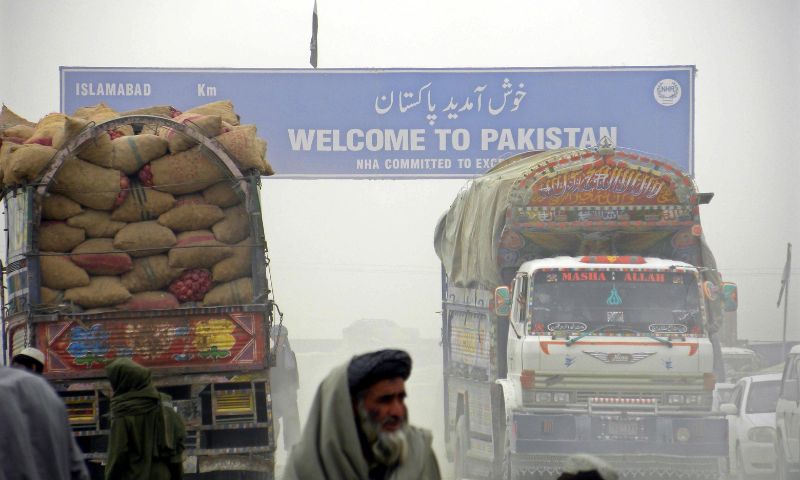Trade flows between Pakistan and Afghanistan have never been smooth for decades. The political and security environment is having a negative impact on bilateral trade, but there are some other technical issues. The bilateral trade volume reached 2.3 billion dollars some 5 years ago. However, this level could not have been sustained, which has declined to 2-300 million dollars till recently. In the year under review, it is expected to reach over a billion dollars. Islamabad and Kabul need to sit across the table to remove hurdles in the way of bilateral trade, and trade should not be affected by political decisions.

Pakistan is the largest trade partner of Afghanistan, followed by China. Since the Taliban takeover of Kabul in August 2021, the Chinese have started investing in Afghanistan. This is a difficult time for Afghanistan under the Taliban to have international trade as it is facing a number of sanctions from the USA and other countries, and also from the financial institutions. There is no immediate relief expected to recognize the Taliban government as legitimate. There are pre-conditions attached by the international community including respect for women and human rights, lifting of the ban on girls’ education, and formation of the all-inclusive interim government. However, there is no or too little progress on the issues to meet these conditions. International sanctions have serious implications for the people of Afghanistan, as the war-affected country has been facing the worst humanitarian crisis. There is limited international trade to meet their needs.
Pakistan and Afghanistan have been enjoying trade relations with some ups and downs. Other than bilateral trade, Pakistan has been providing transit trade facilities to Afghan traders to carry their imports and exports through Pakistan. Under the Afghan-Pakistan Transit Trade Agreement (APTTA) 2010, Pakistan allows transit trade via its land route. However, APTTA is leaving negative impacts on Pakistan’s local industry and traders. Pakistan is losing revenue due to illegal trade under the transit trade. Afghanistan is importing goods that are more than what is needed. Smuggling is considered a serious challenge to the Pakistani economy. It has been causing a huge loss of tax revenue, and also putting the local industry under pressure.
Pak-Afghan Trade Ties
No doubt transit trade is an issue for Pakistan, but there is also a nexus among the smugglers and some officials from both sides to encourage it. Pakistan realized it was a serious issue and launched a crackdown against the people involved in this illegal trade. The total volume of the transit trade reached 6.7 billion dollars in 2022-23, from 4 billion in 2021. This is called an abnormal growth in the transit trade. Analysts and the business community see it as imports of unnecessary items under the transit trade. Pakistan has imposed a 10 percent processing fee on transit goods imported to Afghanistan and put some 212 items on the essential items list. Pakistan sees that Afghan traders have been importing goods more than required for their country. Most of the items, imported by Afghans under the transit trade, have been smuggled back to Pakistan. Afghan traders have protested the imposition of processing fees and included 1/3rd of the goods in the negative list.
Shahid Hussain, senior vice president of the Sarhad Chamber of Commerce and Industry, said, Pakistan has the right, under the agreement, to impose processing fees and put certain items in the negative or essential lists. The transit trade facility is being misused by the traders on both sides of the border.
Pakistan has been asking time and again from the Afghan government to look into the issue of transit trade. Afghan traders have been importing goods in huge quantities that are manifolds higher than the needed items in their country. Black tea, fabrics, cosmetics, electronics, tires, and some other goods were included in the banned items list
Khan Jan Alikozy, president of the Afghan-Pakistan Joint Chamber of Commerce and Industry, from the Afghan side, says, Pakistan should facilitate bilateral and transit trade as this could have negative impacts on the trade relations between the two sides. Both countries are interconnected and interdependent. Afghanistan needs access to use the Pakistan route for transit trade whereas Pakistan is looking to have access to the Central Asian countries via Afghanistan. According to Alikozey, a high-level Afghan delegation led by acting minister for commerce and Industry Mawlawi Nuruddun Azizi visited Islamabad and attended a trilateral conference. The Afghan delegation took up the issues of mutual interests with Pakistani authorities including the withdrawal of processing fees and allowing Afghan trade consignments stuck up at the Karachi Port. Pakistan allowed 3000 containers to be transported to Afghanistan. The processing fee of 10 percent was waived but that would be a one-time facility. There was no change in the negative and essential list.
Pakistan and Afghan officials agreed to move forward on the trade-related issues and will meet in Kabul to resolve all the outstanding issues. This is a positive development that Pakistan and Afghanistan senior officials met in the prevailing tense situation between the two neighboring countries. Afghanistan mainly relies on trade with the world through Pakistan, which is the shortest trade route with low cost.
Trade, economic activities, and foreign investment are linked to peace, security, and political stability. No doubt, Afghanistan has a strategic location but that could be utilized if there is peace and cordial relations with the next-door neighbors. It is up to the leadership of the Taliban to decide in the larger interest of Afghanistan, which will benefit the region too.

























